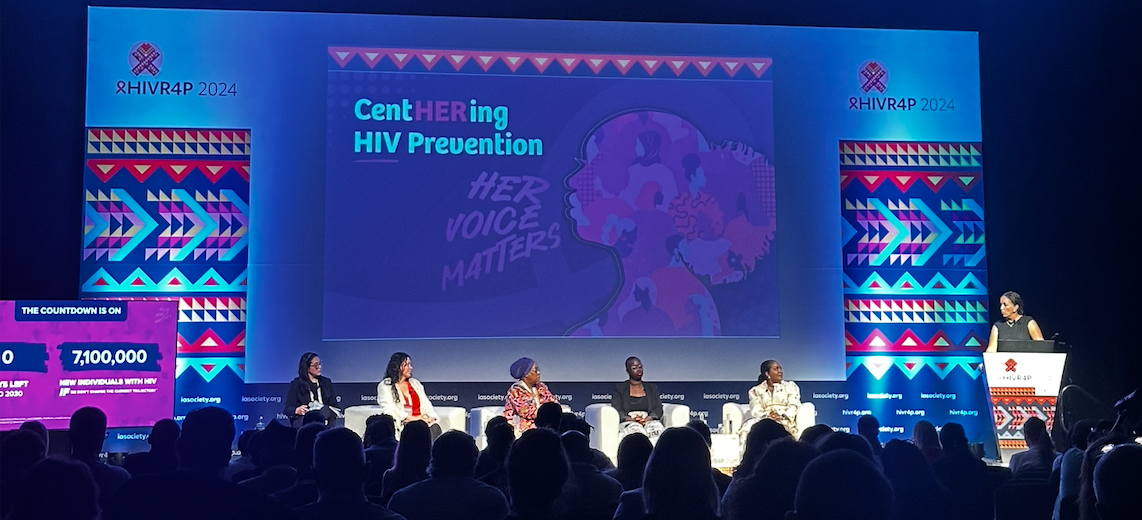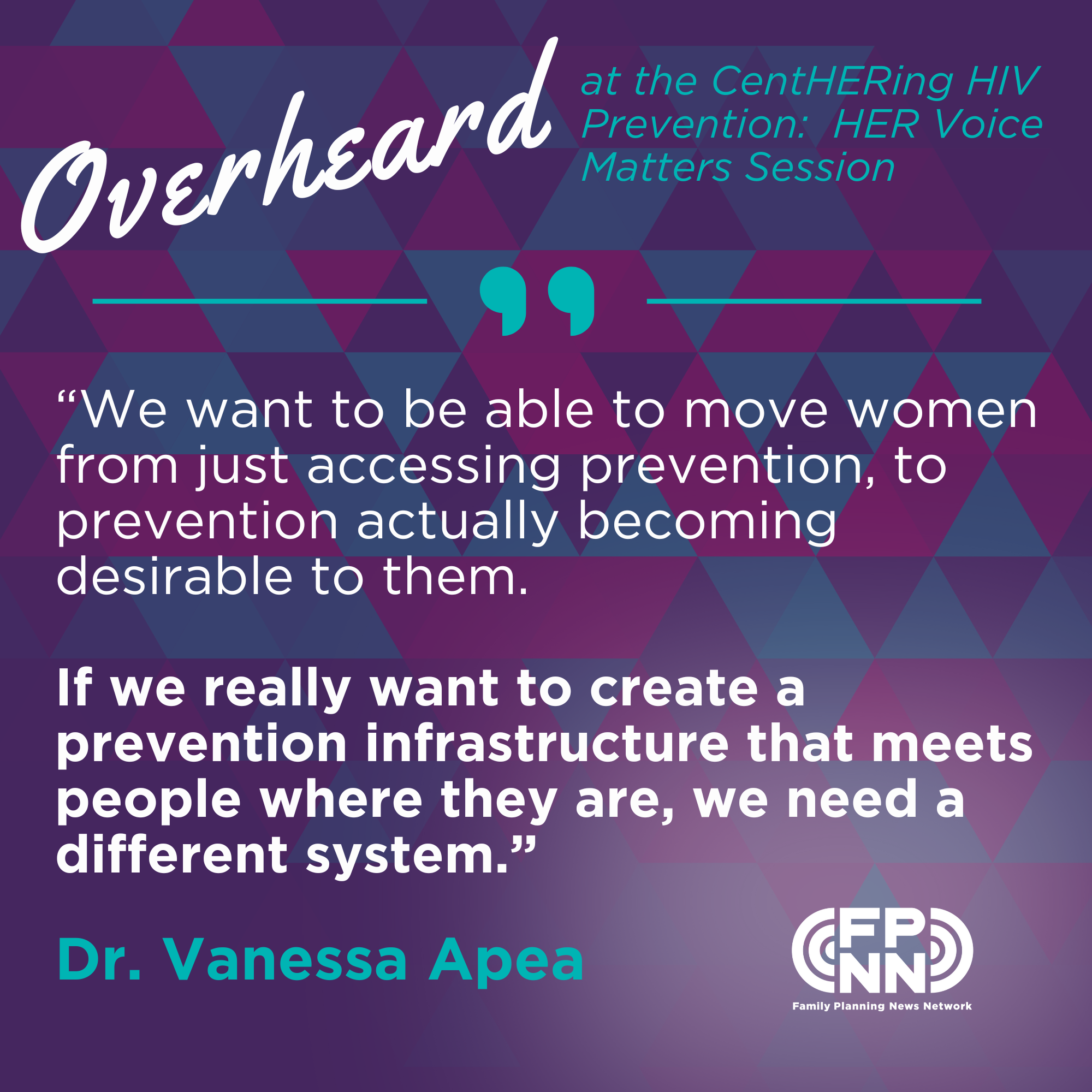Overheard at the CentHERing HIV Prevention: HER Voice Matters Session
The FPNN Community Reporters attended the CentHERing HIV Prevention: HER Voice Matters Session during the HIVR4P 2024 Conference in Lima, Peru.
This is what they OVERHEARD.
The global panel discussed experiences, barriers, and strategies to achieve the UNAIDS 2030 HIV prevention targets to end the HIV epidemic.
Quotes by Yvette Raphael from Kenya:
“It’s important for us to think about the politics of the bedroom. It’s not easy for a woman to talk about HIV prevention. To some, it may be second-hand nature to use a condom, ask for a condom, or plan ahead for sex. But that is not the case for all women. Many women are not given these options: they may have a partner who does not use a condom or does not understand the concept of HIV prevention.”
“Methods such as PREP are revolutionary for women. They can make decisions about preventing themselves from HIV outside the bedroom. It gives them the power to control their own health.“
“But that’s it: HIV prevention works differently for everyone - what works for one person may not work for another. And we need to be designing services for HIV prevention that meet the needs of women where they are.”
“We need to prioritize HIV prevention as much as we prioritize treatment. From a political perspective, I don’t think we are taking HIV prevention this seriously. There is no magic wand. We need to change the mentality that there is a one-size-fits-all solution for women.”
Quotes by Dr. Vanessa Apea from the United Kingdom:
“When we think about prevention, we think about a more decentralized, de-medicalized system. Somewhere where women can go and where they can see themselves as candidates for prevention. Where we can motivate them to link to and stay linked to care.”
“We want to be able to move women from just accessing prevention to prevention becoming desirable to them. If we really want to create a prevention infrastructure that meets people where they are, we need a different system.”
Quotes by Ashley Cobb from the United States:
“Being monogamous is not a prevention method.”
“We have to talk about PrEP as a self-care thing. And talk about the pleasure of it all. People are having sex because it feels good. We cannot talk about one without the other. We cannot talk about PrEP only in terms of prevention - we have to make it kind of sexy - the reason why they should do it. Instead of just saying “You are at risk”. Because no one thinks they are at risk.”
“[We have to] give them a why. Why are you doing this? I’m doing this because I want to take the control back into my own hands, I’m doing this because I want to be a better example to my community - so give them the why instead of making it a risk-talk conversation.”





